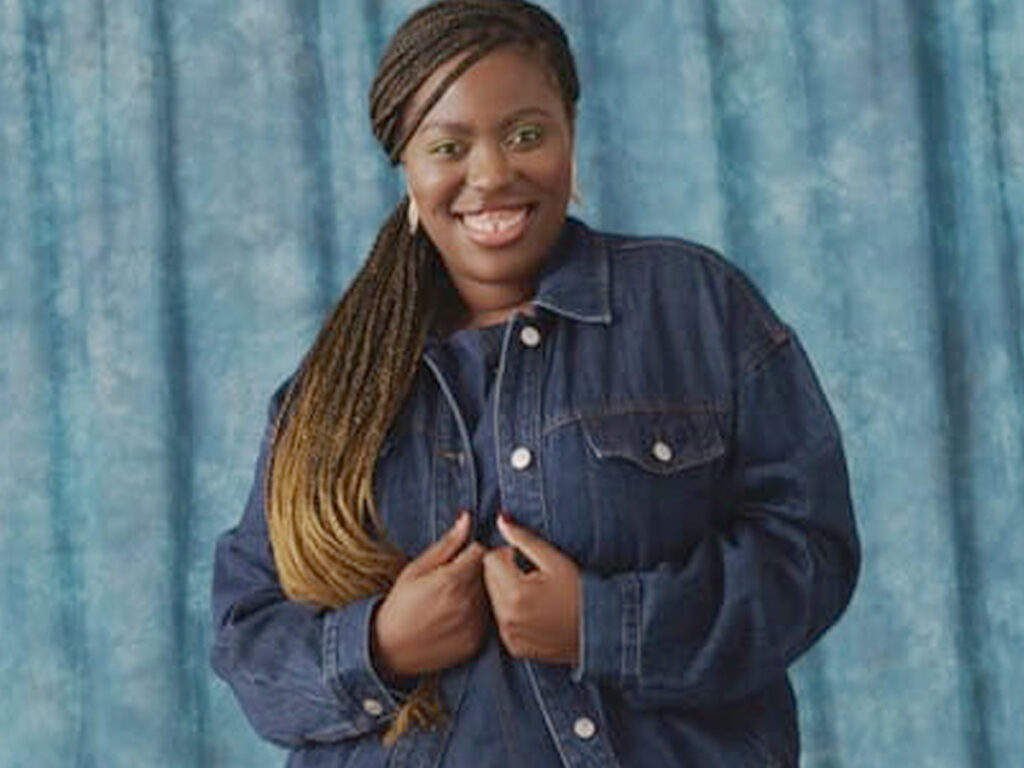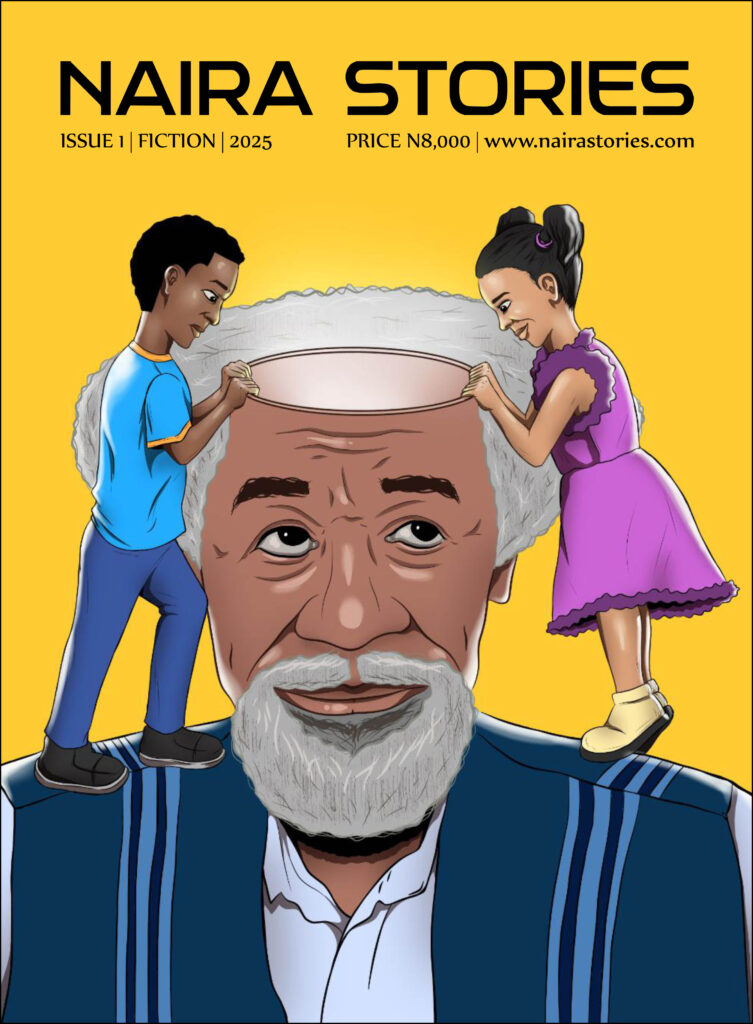Candice Chirwa is a South African educator, social entrepreneur, writer, and thought leader in social impact, and is currently pursuing a PhD in International Relations. She is the founder and director of Qrate. Known as the Minister of Menstruation, she has spent the past eight years breaking the silence around periods and pushing for systemic gender equality. Her work has led to her inclusion in the Forbes Africa 30 Under 30 Class of 2025, and she has been honoured by Mail & Guardian, Constitution Hill, and the NYDA. In this interview by GRATEFUL OGUNJEBE, she speaks about her work in social and gender spaces and how to improve the menstrual health of South African girls and women.
You have an intriguing educational background. Your four university degrees — two bachelor’s, a master’s, and a PhD — all from the University of Witwatersrand (UW), South Africa. Why study International Relations all the way? Why all degrees from UW?
Honestly, I did not go into International Relations (IR) thinking it would be my life’s defining path. However, it grew with me, and I grew with it. I have always been fascinated by the way the world works — how politics shape everyday lives, and how global decisions filter down to impact young girls in a South African township. For me, IR was not just theory; it was about making sense of power, inequality, and justice.
Why Wits? It was not just about convenience. Wits challenged me intellectually, politically, and socially. It is an institution that pushes you to think critically about who you are in the world, and I thrived in that environment. Each degree, from my undergraduate to my PhD, gave me new lenses to understand the complexities of gender, rights, and development. It became less about “collecting degrees” and more about sharpening my tools to do the work I was called to do.
Most South Africans do not go past first degrees. What inspired you to go for a PhD? What do you want to achieve with it, and do you see it shaping the work you do?
The PhD was not about chasing prestige; it was about necessity. Working in menstrual health advocacy, I often felt that people dismissed the issue as “soft” or not serious enough for political and academic spaces. I wanted to change that by grounding it in rigorous research. My PhD looks at menstrual health as an emerging international norm across South Africa, Scotland, and India, and this helps frame the issue as a global human rights concern, not just a “women’s problem.”
It shapes my work every day. When I speak to policymakers, I can back my advocacy with data and theory. When I work with communities, I can connect the grassroots to the global. For me, the PhD is a bridge between academia and activism, between the personal and the political.
Over the years, you have been active in the social and humanitarian spaces. How would you define the kind of social entrepreneur you are? What inspired your social and humanitarian endeavours, and when and how did you start?
I like to call myself an edutainer. I merge education with entertainment because I believe learning about taboo topics should not feel like a lecture. What inspired me? Honestly, it was a lived experience. Growing up, menstruation was something wrapped in shame. I wanted to break that silence.
Qrate was born from this desire. We started small, with workshops in schools and community halls, and it grew into something bigger. Now we design toolkits, run campaigns like Dads for Pads, and create fun ways, like comics and games, to get people talking about periods. What makes me different as a social entrepreneur is that I do not just create programmes; I create culture shifts.
What kind of social issues do you address or advocate for, and what platform(s) do you use to leverage to bring about the change you hope to see?
My central focus is menstrual health, but through that, I touch on bigger social issues — gender inequality, education, poverty, and dignity. Menstrual health is an entry point into conversations about justice.
I leverage multiple platforms for my work, such as workshops, our bread and butter at Qrate, where change begins face-to-face. For example, we have worked with Engen and Nedbank through their CSI initiatives, running workshops that link corporate social investment with real community impact. Another platform is corporate empowerment. With Vodacom, we have created spaces for employees themselves to unpack period positivity in the workplace. It is not just about donating pads — it is about shifting internal culture.
Through digital media, such as TikTok, Instagram, and our Crampin’ My Style podcast, we bring advocacy into the everyday digital lives of young people. Another platform we leverage is policy spaces. Beyond grassroots and corporate spaces, I also consult directly with the government. I am part of the South African Menstrual Health Coalition, which collaborates with the Department of Women, Youth, and People with Disabilities. This ensures our advocacy does not just stop at awareness but also feeds into policy development.
Gender and reproductive health, especially in the African setting, are things most people try to avoid. How do you get people, especially men, to key into this advocacy? How do you get the funds to ensure the sustainability of your projects?
You cannot shame or scold people into caring; you have to invite them. With men, we use humour, relatability, and sometimes discomfort as tools. Dads for Pads is a perfect example. It normalises fathers buying pads for their daughters. Suddenly, men who thought periods were not their business realise they have a role to play.
Funding is always a hustle. We sustain ourselves through partnerships, speaking engagements, workshops, and sometimes brand collaborations. But, honestly, I also think transparency about funding challenges is important. Advocacy is not glamorous — it is hard work, and sustainability is about constantly building trust with partners who see value in long-term impact.
You pride yourself on being the Minister of Menstruation. How did this title come about? Do you think the South African government and other African governments should create a special ministry for menstruation and period issues?
A good friend of mine gave me the title as he was seeing the work I was doing in communities. He felt I was more visible than our actual ministers in South Africa, and doing important work as well. For those who do not know, we have a lot of ministers in South Africa. So, instead of shying away, I embraced it because it reframed something taboo into something powerful and even playful.
Should there be a Ministry of Menstruation? Maybe not literally, but symbolically, yes. Menstruation deserves institutional recognition, not hidden in health, not tucked under education, but as its own cross-cutting issue. A ministry signals seriousness, resources, and accountability.
If South Africa were to officially create a Ministry of Menstruation, and you were appointed to head it, what difference do you think it would make in the lives and health of women? How would you ensure that the difference is sustained after you leave the ministry?
I would start by ensuring menstrual health is not just about products but about dignity, education, and infrastructure. Free pads alone would not fix period poverty if girls do not have bathrooms at school, or if stigma keeps them at home.
Sustainability would come from embedding menstrual health into broader policies: education, healthcare, and labour rights. That way, even if the minister changes, the systems remain. My dream would be a South Africa where menstruation is seen as ordinary, not extraordinary.
If you were to pay the South African president a courtesy visit, what three advice would you give him regarding poverty and humanitarian issues in the country?
I would advise him to listen to young people — they are not the future; they are the present. He should invest in dignity, not just infrastructure — poverty is not just a lack of money, it is a lack of a voice, an agency, and respect. Finally, he should prioritise gendered approaches — poverty looks different for women, and policies must reflect that.
Have you thought of a South Africa where a woman is the president? Or, perhaps, where you are the president? What are your hopes or expectations of a woman-led South African presidency?
Of course. Representation matters. A woman president would signal progress. However, I am cautious. It is not just about identity — it is about the politics she brings. I would hope for a presidency that centres care, dignity, and inclusion.
Me as president? I think my role is more as the Minister of Menstruation than the Commander-in-Chief. But I do believe that feminist leadership is what South Africa needs — a leadership rooted in empathy, justice, and accountability.
You are a writer and author of a book. Tell us about your book, why you wrote it, and what you intend to achieve with it. If you were to write another book, what would it be about and why?
My book, ‘Flow: The Book About Menstruation’, was written because I wanted young people to have the resource I never had growing up. It is colourful, fun, and direct, something you can pick up without shame.
Yes, not everyone reads, but that is why we complement the book with workshops, comics, and digital campaigns. The book is just one tool in a bigger ecosystem.
If I were to write another book, it would be about my journey with Qrate — not just the wins, but the lessons, the failures, the laughter, and the tears. A behind-the-scenes look at building a movement.
Your bio states that your advocacy extends beyond grassroots work to partnerships with organisations such as the United Nations, Global Citizen, Levi’s, Shoprite, Engen, Nedbank, and Vodacom. Tell us about these partnerships — how they impact your career, assist in your work, and help to make South Africa a better place?
Partnerships amplify impact. For example, working with Global Citizen put menstrual health on a global stage. Collaborating with Levi’s allowed us to tie fashion to advocacy. Shoprite helped us reach communities at scale. Engen and Nedbank have supported us through CSI-linked workshops, helping us reach young people directly in communities. Vodacom empowered its own employees to unpack period positivity in the workplace, which was powerful because it meant advocacy was happening internally as well as externally.
For me, these partnerships are not just about funding. They are about legitimacy and visibility. They remind the world that South African solutions can be global solutions.
How do you relax from the stress and challenges associated with your work? And where do you see yourself and your career in ten years?
I love storytelling, whether it is through podcasts, books, or just laughing with friends. Music, dance, and food are my ways to reconnect with joy.
In ten years, I see myself leading Qrate on a continental level, building a period-positive Africa. Personally, I would love to mentor more young women, helping them take up space with courage.
Have you been to Nigeria before? If you were to visit Nigeria, where would you like to go and what would you like to do there?
Not yet. But I have such admiration for Nigeria’s creativity and energy. From Nollywood to Afrobeats, Nigeria sets trends the world follows. If I were to visit, I would want to immerse myself in community spaces, to learn how Nigerian activists are tackling menstrual health — and, of course, to enjoy the food, music, and art.
You have achieved a lot for yourself, personally and career-wise. How would you advise young South African women aspiring to be like you? And, what life or career mistakes did you make that you would caution them not to make?
My advice is simple: Do not wait for permission. Start where you are, with what you have. Perfection is a myth.
Mistakes? I think sometimes I pushed myself to exhaustion, trying to prove my worth. I would caution young women to prioritise rest, boundaries, and self-belief. You cannot pour from an empty cup.




